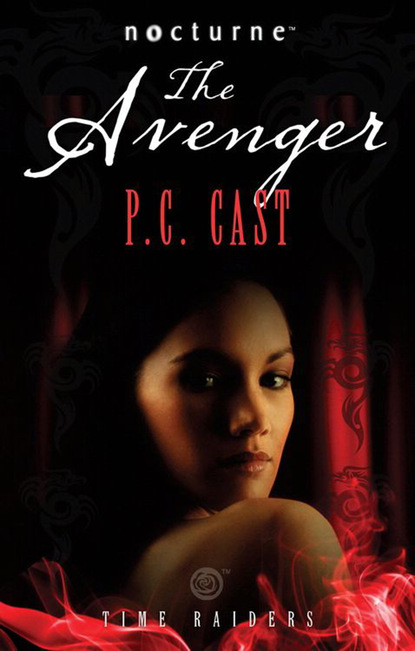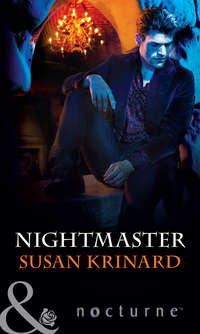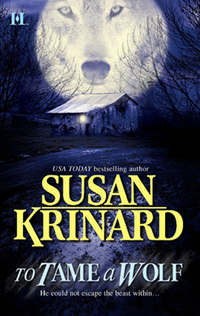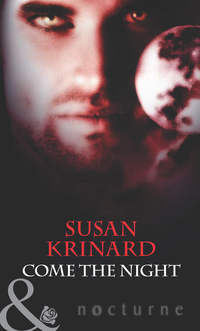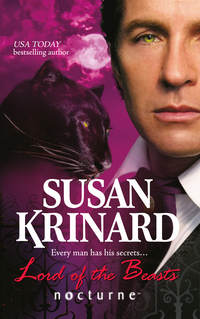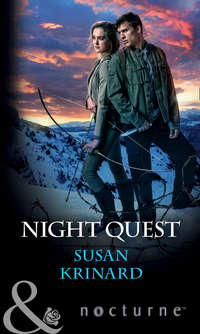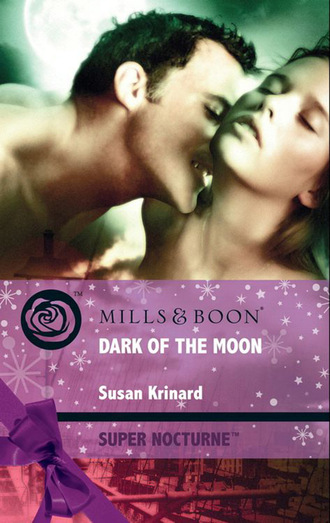
Полная версия
Dark of the Moon

Dorian should have stopped it then and there.
He should have put on his bloodstained shirt and left the hotel room until his mind was clear.
But Gwen didn’t let go. She tucked her forehead into the hollow of his shoulder, exposing the pale, elegant length of her neck beneath red curls. Dorian’s mouth flooded with saliva and the chemicals that would numb her to his bite, to everything but the blissful pleasure he would give in exchange for her sweet blood.
He lowered his head and kissed her vulnerable skin. She trembled. He bit gently. She flinched and relaxed as the chemicals did their work, her body softening in his arms.
Dark of the Moon
By
Susan Krinard

www.millsandboon.co.uk
MILLS & BOON
Before you start reading, why not sign up?
Thank you for downloading this Mills & Boon book. If you want to hear about exclusive discounts, special offers and competitions, sign up to our email newsletter today!
SIGN ME UP!
Or simply visit
signup.millsandboon.co.uk
Mills & Boon emails are completely free to receive and you can unsubscribe at any time via the link in any email we send you.
In loving memory of my dear friend, loyal companion and soul mate. I will never forget you. Brownie 1993-2007
“Seeking to forget makes exile all the longer; the secret of redemption lies in remembrance.”
—Richard von Weizsaecker
Acknowledgement:
Special thanks to Jakob Whitfield for his generous help with 1920s aircraft and to Sun Ray Verstraete for providing Spanish words and phrases.
PROLOGUE
HIS HANDS WERE stained with blood.
Dorian ran blindly through the woods, the inside of his head roaring with emptiness. Branches tore at his clothing and scraped at his skin. Bloody scratches streaked his flesh, closing before he could run another hundred paces. He felt no pain. He felt nothing except the disintegration of his mind.
Raoul was dead.
The gun had become part of Dorian’s hand, metal seared into his palm like a brand.
Raoul was dead, and there was no undoing it.
He didn’t know how far he traveled before he came to himself again. He stopped at the edge of a small human town, somnolent in the warm summer sun. People stared as he walked down the main street, a man bundled up in ragged clothing and mudstained shoes. One good Samaritan, a middle-aged man with deep laugh lines around his eyes and work-roughened hands, called to Dorian as he passed by.
“Are you all right, mister?” he asked. “Need some help?”
Dorian turned to look at the human, hardly comprehending the offer. No one had ever asked such a question of him before. But when he met the man’s gaze, the human flinched, backed away and quickly left Dorian to himself.
So it had always been. They were always afraid.
With that grim knowledge, Dorian’s sense returned. He found a twenty-dollar bill in his wallet and walked to the town’s tiny bus terminal. No one on the bus would meet his eyes. He sat quietly in his seat until the bus arrived in Manhattan. He got off and began to walk again, letting his feet carry him where they chose.
He could not go home. There was no home with Raoul dead and the clan in shambles.
How he came to the East River, he never did remember. The waterfront was raucous with human activity, heavy with the smells of oil and sweat and stagnant water. Dorian drifted alongside the river, looking down at the greasy black surface.
It was hard to kill a vampire. It was even harder for a vampire to kill himself. But Dorian had never lacked will.
He stood on the edge of the pier, the toes of his shoes hanging over the edge. One more step was all it would take.
“I wouldn’t do that if I was you.”
The old man came up behind Dorian, favoring a gimpy leg and squinting through a nest of wrinkles. He was lean as an old hound, dressed in a motley collection of rags.
And he wasn’t afraid.
“It can’t be as bad as all that,” the man said, offering a smile that was missing several teeth. “Never is.” He shoved his hands in his torn pockets. “Everyone’s down on their luck now and then. That’s why folks like us got to stick together.”
Dorian stared at the man. The man stared back.
“Name’s Walter. Walter Brenner.” He thrust out his hand. Dorian hesitated. No human had ever done that before, either.
“I ain’t got no diseases, if that’s what you’re scared of,” Brenner said. “But I do have a little food, if you’re hungry. And a place to sleep, at least for tonight. Then you can decide what’s best to do. Things always look better in the morning.”
Slowly Dorian took the gnarled and knotted hand. “Dorian,” he said. “Dorian Black.”
“Well, Dorian Black, you’d better come along with me. That’s a good lad. Ol’ Walter will take care of you.”
Dorian went. There was nothing else to do.
He was free, but his life was over.
CHAPTER ONE
October 1926, New York City
THE BLACK SUCKING water closed over her head. She flailed blindly, her arms and legs as heavy and inert as logs. Red light flashed violently behind her eyes; she couldn’t think, couldn’t do anything but cling to the instinct that kept her from opening her mouth and swallowing the vile brew that swirled around her.
Is this what it’s like to die?
The thought came and went in a moment of lucidity that vanished before she could grasp it. She sank, her muscles no longer obeying the weak commands of her brain. A fish, goggle-eyed, paused to examine her in astonishment and then disappeared into the sable depths. Her lungs began to burn.
Breathe. Breathe. Breathe…
A stream of bubbles spilled from her lips. All at once she remembered. She looked up at the distant, pale blur of reflected moonlight shining on the river’s surface. It was a million miles away.
Swim. Swim, damn you.
But the air was gone, salvation beyond her reach. She stretched her arms, clutching at a substance that literally slipped through her fingers. An inky curtain fell over her eyes. She made one great effort, propelling her aching body a few feet closer to heaven.
Something gripped her hand, seizing her like the jaws of a killer shark. Her cry emptied her lungs. The last thing she saw was a face…a face that might have belonged to an angel or the most enchanting devil hell ever imagined.
“BREATHE!”
The voice was both harsh and beautiful, like music from another world. It came from very far away, a place out of space and time, and yet it pulled her from the seductive darkness with all the tenderness of a mob enforcer working over some poor schmuck in an alley.
Rough hands turned her over and pummeled her back. A rush of liquid surged into her throat and pushed out of her mouth. She coughed violently, jagged sparks zigzagging through her brain.
“Breathe!”
She gasped. Blessed air flooded her chest. The hands that had shaken and bullied her softened on her arms and lifted her against a warm, firm surface. She heard a heartbeat, slow and steady, felt ridges of muscle under a once-fine broadcloth shirt, smelled a slightly pungent but not unpleasant scent, as if the one who held her had been living in the same clothes for a week.
Still dazed, shivering from a chill dawn wind against her wet skin, she let herself be held. It was absurd to feel so safe in the arms of a total stranger, even one who had saved her life. Crazy to feel as if she could stay there forever.
She pushed at her rescuer, muscles still not entirely under her control. He released her and steadied her as she struggled into a sitting position on the weathered wood of the pier.
For the first time she got a good look at his face. It was the devil-angel she’d seen in the river, distorted then by brackish water and her own clouded vision. Now that she could see him more clearly, she still couldn’t decide if he belonged in Heaven or that other place.
His features were those of a young man in his prime, handsome in the truest sense of the word. Bright moonlight picked out planes and angles joined in perfect symmetry. His skin was smooth, free of stubble, though everything else about his appearance suggested that he hadn’t seen a razor in several days. His cheekbones were high, his chin firm and a little square, his hair dark and badly in need of a good cut, his brows straight above deeply shadowed eyes.
It was the eyes that captured her attention. Gwen couldn’t make out their color, but that hardly mattered. They simply didn’t belong in the face of a good Samaritan who had probably risked his life to save a stranger, a man in his midtwenties with at least forty good years ahead of him. They were as dangerous as a storm about to break, as grim as the bloodstained steel of a Thompson’s machine gun. If they’d ever seen a smile, it was in some distant past she could scarcely imagine.
Most women—yes, even most men—would have cringed from that remorseless gaze. Not Gwen Murphy. She continued her scrutiny, taking in the frayed cuffs of his shirt, the jacket that had seen better days, the patched trousers and scuffed shoes. This was a fellow down on his luck; there were still people like him in New York, though business was booming and almost everyone seemed to be sharing in the general prosperity.
Everyone except the unlucky few: men crippled in the Great War, widows struggling to raise fatherless children, immigrants who hadn’t yet found their way in a strange country, drunks who couldn’t keep money in their pockets.
Her savior looked perfectly healthy and whole. He didn’t appear to be drunk. He could be a foreigner who didn’t speak enough English to find a decent job.
There was only one way to find out.
“You saved my life,” she said, her voice emerging as a croak. “Thanks.”
The man cocked his head, his gaze still locked on hers.
She cleared her throat and tugged her drenched glove from her shaking right hand. “I’m Gwen Murphy,” she said, offering the hand.
He glanced down, studying her trembling fingers as if he suspected she had some nasty and highly contagious disease. She was about to withdraw her hand when he seized it in the same bulldog grip that had snatched her from a watery grave.
“Dorian,” he said, filling the air with that strange music. “Dorian Black.”
Gwen almost laughed. She recognized the edge of hysteria that lurked beneath her enforced calm and swallowed the laughter. Once she started, she might have a hard time stopping. And Mr. Black didn’t look as though he would appreciate the reaction.
“Mr. Black,” she said, returning his grip as firmly as she could. “I don’t know how you happened to show up right when I needed you, but I’m grateful.”
He dropped her hand and curled his fingers against his thigh. “It was no trouble,” he said, each word clearly enunciated, as if English were a second language painstakingly acquired. “Do you require a doctor?”
She suppressed a shiver. “I’m all right. Just a little cold. And waterlogged.”
Still no smile cracked his sculpted face, but his brows drew down in an expression that might have been concern. He shrugged out of his jacket and draped it over her shoulders. The coat wasn’t entirely clean, but Gwen was grateful for both the warmth and the gesture.
“Thanks,” she said.
He lifted one shoulder in a shrug that betrayed a whole world of discomfort. “How did it happen?” he asked.
The question took Gwen a little by surprise. Black was so taciturn that prying an interview out of him would be worse than pulling teeth. Maybe he wasn’t really interested, but she had to give him points for trying.
“I’m a reporter for the Sentinel,” she said. “I was on the docks investigating a lead when I was jumped by some hooligans who thought I’d be an easy mark.” She suffered an annoying surge of embarrassment and probed at the growing bump on the back of her head. “I wasn’t that easy. When I fought back, one of them hit me over the head and dumped me in the river.”
Black’s eyes narrowed. He looked up the pier to the boardwalk, as if he might still find the young men who’d done the deed. Even if they’d hung around to make sure their victim had well and truly drowned, they would be lost to sight; the nearest street lamp was a hundred yards away, and there were plenty of places to hide. It was close enough to dawn that longshoremen and sailors on leave were starting to turn up at the docks. If it weren’t for the relative isolation of this particular pier, the roughnecks never could have gotten away with their attack in the first place.
“Do you usually come to Hell’s Kitchen in the middle of the night?” Black asked, turning back to her with subtle menace.
Gwen sat up straighter, squaring her shoulders beneath the oversized jacket. “Certain activities are less conspicuous in the dark,” she said. “I didn’t want to be seen.”
“Someone saw you.”
“But not one of the someones I was trying to avoid.”
“And who would they be, Miss Murphy?”
Sudden nausea gripped Gwen’s stomach. “That’s confidential,” she said. Her ankles wobbled as she struggled to stand. “I think I’d…better call a taxi.”
Black jumped to his feet with an athlete’s grace and caught her arm as she tottered and nearly fell. “You’re in no condition to walk alone, Miss Murphy. I will escort you to the nearest telephone.”
“Really, I’ll be fine.”
Without answering, he pulled her closer to the dry heat of his body and led her a few halting steps. The nausea increased, creeping up into her throat. It had to be a combination of things: the filthy water she’d ingested, the head injury, the shock of nearly dying. She should be able to overcome it. She was Eamon Murphy’s daughter, for God’s sake…
Black stopped. “You won’t make it,” he said bluntly.
“Yes, I will. I just need a little more time.”
Her savior looked pointedly toward the east, where the sun was rising over Queens. “No time,” he muttered, and then raised his voice. “You will come with me.”
Gwen passed her hand over her face, fighting a nasty headache. “Come with you where?”
“To a place where you can rest.”
Her skin prickled with warning. “I’m grateful. I really am, Mr. Black. I’d certainly—” Bile pushed into her throat. “I’d like to return the favor, but I have to get back. If you’ll just…”
A flood of sickness overwhelmed her. She jerked away from Black, emptying her stomach. The humiliation was excruciating. She wasn’t some damned cub reporter who couldn’t deal with a little adversity.
A steadying hand touched her elbow. She pushed it away.
“I’m fine,” she said.
“You’re coming with me, Miss Murphy.”
She shook her head, and suddenly she was seeing stars. Her lungs seemed filled with concrete. She couldn’t catch her breath. It was the darkness all over again, dragging her down like the treacherous river currents.
The water closed over her head, and this time there was no reaching the surface.
VOICES WOKE HER. The first thing Gwen noticed was that she was lying on something reasonably soft. She listened for a moment before opening her eyes, recognizing the newly familiar intonation of the enigmatic stranger who called himself Dorian Black. The other voice was older and less steady, slurred with drink and amiably loquacious. The conversation was too soft to be intelligible, and when Gwen opened her eyes she saw only her darkhaired savior, crouching in the light of an old-fashioned gas lamp.
His eyes were gray. They’d seemed colorless in the night, yet she’d thought of steel. She’d guessed correctly. That granite stare gave no quarter and asked for none.
Gwen tried to sit up. Black pushed her back down, his hand spread on her chest with no apparent regard for her anatomy. The feel of his palm on her breasts, her flesh and his separated by only the thin georgette of her blouse, startled her into stillness.
Apparently he’d judged that she would be more comfortable without her jacket or his, but at least he hadn’t relieved her of anything else but her shoes. Her skirt, hose and blouse were nearly dry, hinting at the length of time she’d been under Black’s care.
She hated the very idea that she’d been so helpless.
“Where am I?” she demanded.
He held her gaze with unnerving steadiness. “In a safe place.”
Some answer, Gwen thought, turning her head to examine the space around her. To the left was a solid, windowless wooden wall. To the right Black loomed over her, blocking her view. She couldn’t have seen much beyond the reach of the lamp in any case, but she sensed an open area partitioned off by the stacked crates that created a sort of room just large enough to accommodate her makeshift bed, a stool with one wobbly leg, and a smaller crate spread with a few items, including a mug, a basin and sundry objects she couldn’t quite make out. Hanging from nails hammered into the stacked crates were a pair of stained and threadbare shirts, a patched jacket, and a folded set of frayed trousers. It was evident that Black had made a home for himself in a place most people would consign to spiders and rats.
She’d seen men living under worse conditions, but not often.
“Are we still on the docks?” she asked.
He nodded, apparently considering a verbal reply unnecessary. Gwen pushed herself halfway up on her elbows.
“I guess I fainted,” she said, swallowing her pride.
“You fell unconscious,” Black said.
“You aren’t responsible for me just because you saved my life.”
He arched a brow at her sharp tone, and for a fleeting moment she thought she saw a sort of smile on his lips. “Having saved your life,” he said, “I would not like to see my efforts go to waste.”
“It must be daylight by now. Someone else would have found me.”
He shifted his weight, letting his long, elegant hands fall between his spread knees. “You do not strike me as the sort of woman who would want to be discovered sprawled on the boardwalk in a pool of her own vomit.”
His bluntness took her aback, but she couldn’t fault him for it. She preferred straight talk herself…a characteristic that often flabbergasted her male associates at the Sentinel.
“Well,” she said, “when you put it that way…” She licked her lips. “You wouldn’t happen to have some water, would you?”
He turned away, lifted a cracked pitcher from the table crate and poured a measure of water into the mug. Gwen took it hesitantly, gave a surreptitious sniff and put her lips to the rim. The water was surprisingly fresh.
“Thanks,” she said, handing the mug back to him. She opened her mouth to begin another argument about why he should let her go, but the words died in her throat. She found herself staring at him instead…staring like a girl suddenly confronted in the flesh with her favorite matinee idol. It was the most ridiculous thing in the world. And she couldn’t help herself.
“Who are you?” she said. “I mean, what is this place, and what are you doing here?”
He regarded her for a moment, as if he were considering whether or not it was worth his while to answer. At last he settled back against the crates behind him, stretching his legs across the space between them.
“I’ve told you my name,” he said. “I and a few others live in this abandoned warehouse. We trouble no one.”
She wondered why he’d included that last statement. Did he suspect that she’d detected something dangerous in his eyes?
“Most people wouldn’t live this way by choice,” she said.
His eyes took on a bleakness that hinted of some past tragedy, which came as no surprise to Gwen. “I don’t see what business that is of yours,” he said.
Pride. Even men without homes had it, sometimes more than those who had everything. Gwen knew she should just shut up and leave well enough alone. After all, once she walked out of this place, she would probably never see Dorian Black again.
But she’d spent a lot of time on the streets talking to people who didn’t know what it was like to make a fortune on Wall Street or drive the latest model sedan…who didn’t even know where their next meal was coming from. Telling the stories of the forgotten men and women of New York had been her personal crusade. Until Dad had died, and left her with his own private obsession.
There was something about Dorian Black that just wouldn’t let her leave it alone, something that told her he wasn’t the average unemployed guy with a chip on his shoulder. She would almost have guessed he’d come from a criminal background.
But your typical petty criminal didn’t usually let himself sink into dire poverty. He was either in jail or setting up another job, selecting another mark, planning a new scam. He was by no means the kind who would save someone from drowning. And guys involved with the mobs didn’t generally find themselves on the street. They were either working for a gang or, if for some reason they lost their usefulness, they were disposed of. It was just too dangerous for any mob boss to let one of his former subordinates run loose.
So what in hell was he?
She girded her loins and shaped her voice to a careful neutrality. “You’ve fallen on hard times,” she said.
He shrugged.
“You haven’t been able to find a job,” she persisted.
Something large rustled among the crates, and Gwen thought she glimpsed a long, naked tail. She shuddered. Black ignored the noise and leaned his head back against the crates.
“Why should you think I want employment?” he asked.
Deliberately testing him, she sat up. “You’re young and healthy,” she said. “Obviously intelligent. Educated.”
“So?”
That voice could have stopped a train in its tracks. Gwen held his gaze. “Let’s just say that I’d like to know a little more about the kind of man who’d rescue a total stranger.”
“You doubt the natural gallantry of the stronger sex?”
She stifled a snort. “I’m not a romantic, Mr. Black.”
“Neither am I.”
“Nevertheless, I’d really like to hear how you came to be living here. Are you alone in the city?”
His face was expressionless. “Would you perhaps be planning to write a special-interest story for your paper, Miss Murphy? An essay on the plight of unemployed men who live on the docks?”
Weary cynicism laced his words. She almost felt guilty. “If I did write such a piece, Mr. Black, I wouldn’t use your name. But that isn’t my intention.” She scooted around to lean with her back against the wall, drawing her knees up and pulling her coat over them to preserve her modesty. “Were you in the War, Mr. Black?”
“No.”
If there was one thing Gwen was good at, it was telling when someone was lying. She saw the true answer in Black’s eyes even before he opened his mouth to speak. They clouded over, losing their sharpness. As if he were remembering. As if he feared that another word might send him tumbling back in time to a world he had never quite left.
She swallowed, dodging memories of her own. Black had saved her life, but she didn’t think he would want her hanging around dredging up memories of the past, and there was another subject she wanted to cover before he tossed her out on her ear.



